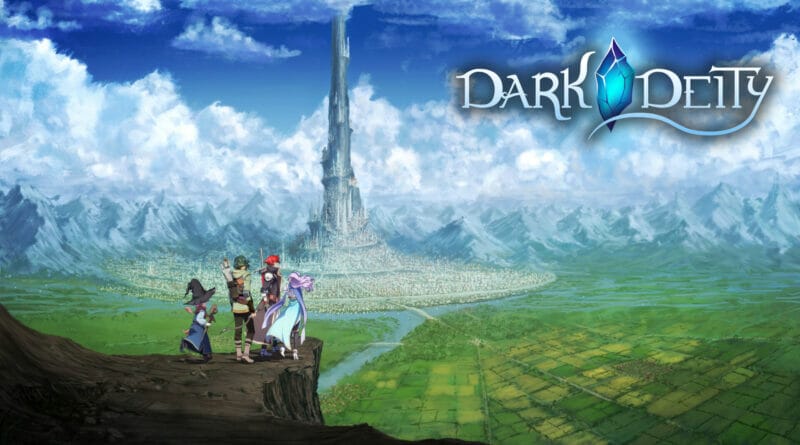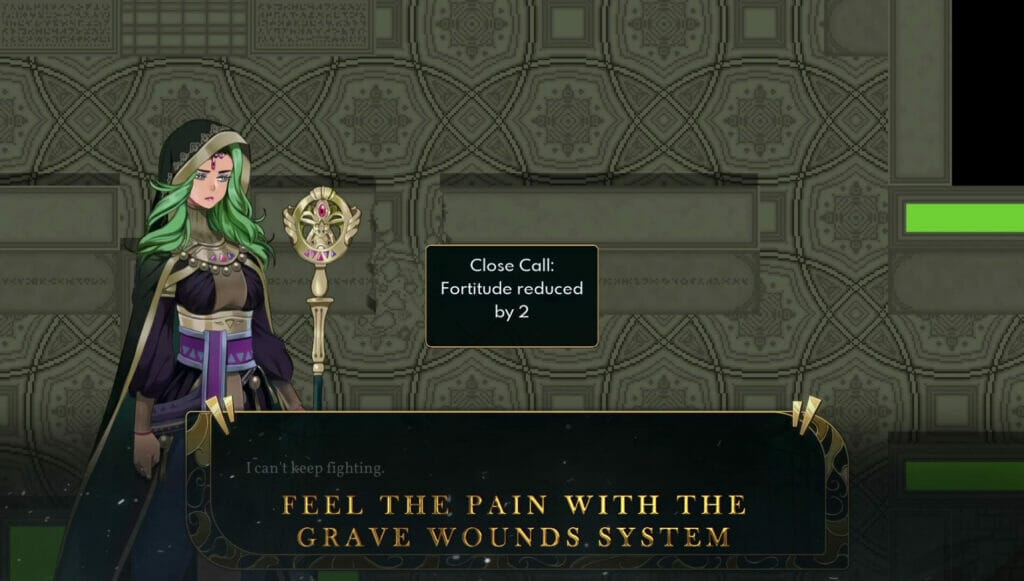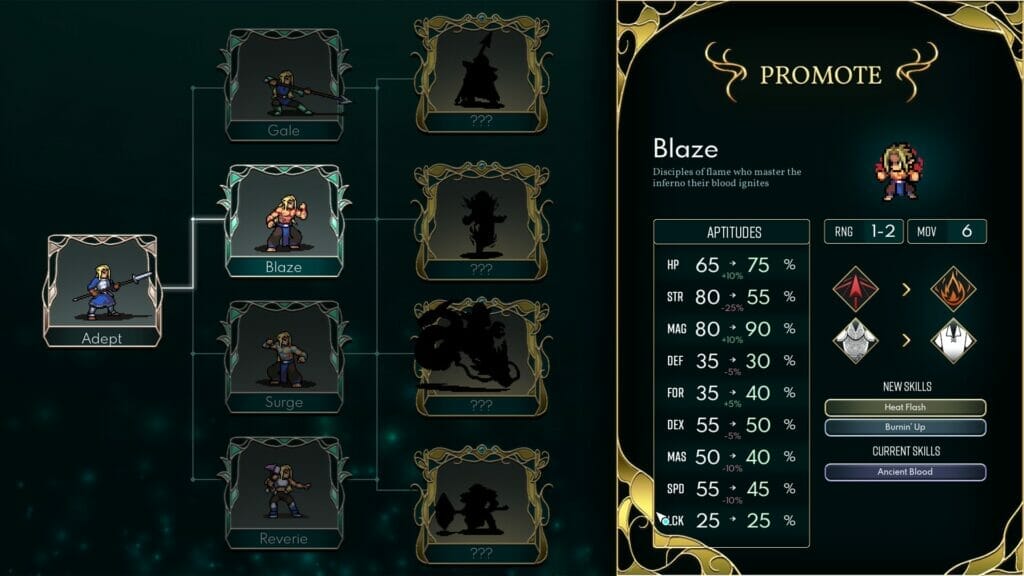***WARNING: Mild Spoilers for Dark Deity***
On top of providing us with all kinds of unconventional experiences, indie gaming allows players to experience games that act as throwbacks to older games. This certainly feels the case for Dark Deity, released June 15 on Microsoft Windows. A callback to older iterations of strategic role-playing games like early Fire Emblem titles, developers Sword and Axe LLC have used their formula to create a world all their own while innovating upon basic aspects of the aforementioned games in their own ways.
After a few hours with the game, I can safely say that Dark Deity is an enjoyable evolution from the formula that it has built itself off of. There are moments where the game feels too conventional, or as if it takes leaps that can be hard to keep up with. However, for the most part, this is a fun return to the basics of strategy RPGs that will be a breath of fresh air for those familiar with the genre and a decent entry point for newcomers.
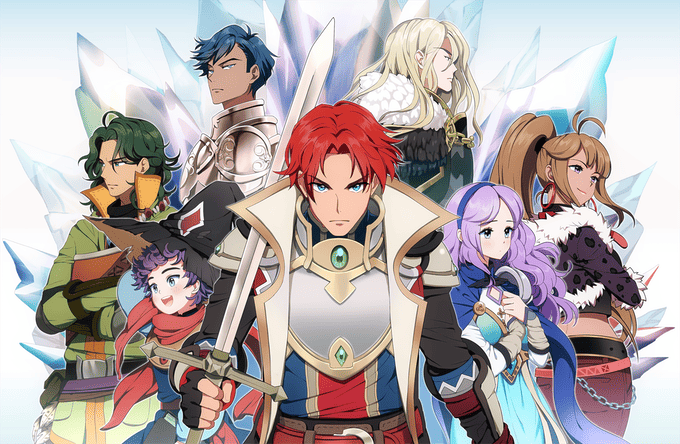
The game takes place in the Delian Kingdom, a nation that is on the losing side of a war. Out of desperation, King Varic decides to prematurely conscript the nation’s military academy students to fight in the conflict. Four students, in particular, Irving, Garrick, Alden, and Maren, in addition to joining the war, encounter a separate fight surrounding powerful magical objects known as Eternal Aspects. It is up to these four to not only help win the war for the Delians but keep the Eternal Aspects out of the wrong hands.
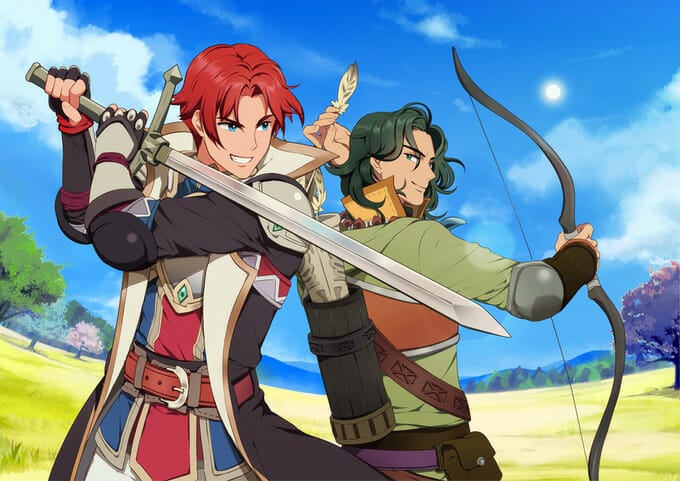
The story is not the most unique out of those in the strategy RPG genre, as its influences from the fantasy genre and the games that inspired it are quite clear. However, that doesn’t mean that the journey itself isn’t enjoyable; in fact, quite the opposite. While the characters themselves do fit gaming tropes, for the most part, they each stick out in regards to their designs and their interactions with each other.
Everyone has a pleasing look to them with no two people looking exactly the same, which is needed in a game with such a huge cast of playable characters. Moreover, a huge aspect of the game is building relationships between units, with enough interactions unlocking conversations between characters that bring them closer. These range from serious to hilarious, but each of them feels genuine and fleshes out those interacting even further.
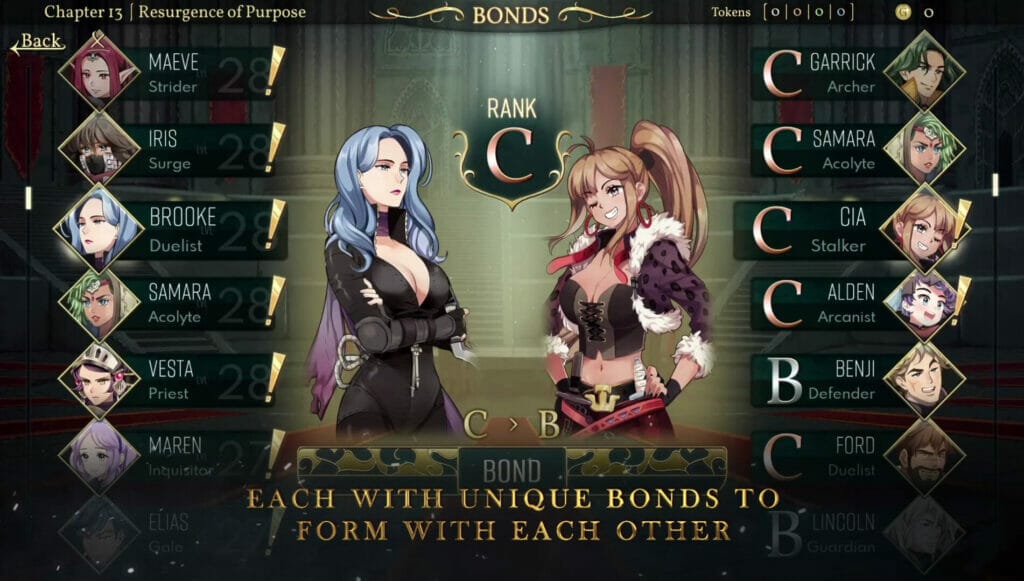
Praise for Dark Deity’s looks can be extended to the pixel art in battles as well; everything, from maps to character sprites, looks gorgeous in the 16-bit style the game chose to go with. That the characters’ attack animations are also fluid is another plus to go with these aesthetically pleasing appearances. Music also does an impressive job of setting the tone in both conversations and battle, giving the right amount of intensity whenever needed without being too overbearing.

As for the gameplay, while it does take a bulk of elements straight from Fire Emblem, there are several differences between Dark Deity and its inspirations that, in my opinion, are for the better. You are not able to purchase new weapons; rather, each character has four different types of attacks, each with its own strengths and weaknesses while affecting different enemies in various ways.
From there, these attacks can be upgraded via tokens, which can be earned in-game during battles or purchased in the shop between fights. There are four tiers of tokens, each increasing tier meant for higher-ranked attacks. This system leads to easily understandable upgrades, which makes it so newcomers to the genre can easily get better at the game without the use of convoluted mechanics.
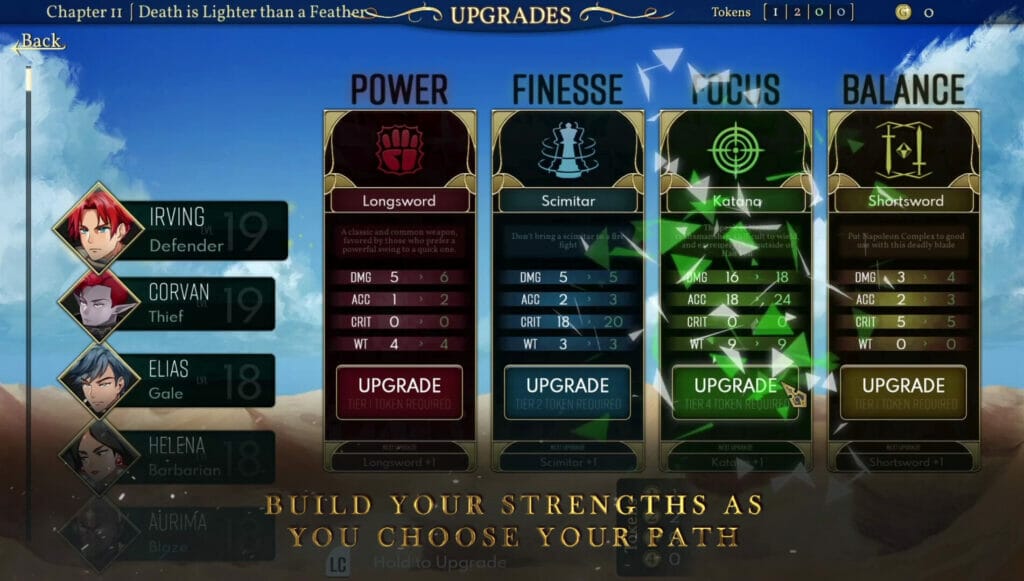
Another original aspect of Dark Deity is how it handles character death. Rather than making it so that characters killed off in battle are no longer playable, those who reach zero health are given some kind of critical injury, which acts as a permanent debuff. This system, while maintaining the stakes of avoiding death, makes things much less harrowing for those unfamiliar with the genre.
Furthermore, for the kind of players who restart battles every time a character permanently dies (like yours truly), it cuts this part of the gameplay cycle out entirely, and I found this difference to be one I welcomed with open arms. Combined with a fast yet satisfying leveling up that allows characters to change classes every 10 levels, I ended up loving the gameplay loop a lot more than I expected.
Dark Deity feels swift but not too fleeting. Enemies are smart, but not to the point where it feels unfair. It felt like a great re-introduction to SRPGs after spending so much time away from them, and it can be a serve as an optimal entry point for those interested in these kinds of games.
That said, Dark Deity is not flawless in the slightest. Although the game is accessible for newcomers, it does not always do the best job at explaining its mechanics. It teaches players the basics of moving units and attacking, but when it comes to details like characters’ special abilities, different weapons’ strengths and weaknesses, and it’s upgrading systems, there are no tutorials for them.
While these things are easy to figure out if one looks into them for themselves, it runs the risk of leaving other players in the dark without much to go on. Furthermore, there were some issues I experienced during gameplay that, while not affecting my overall experience, were definitely questionable. For example, sometimes when characters leveled up, the voice lines they would say would be negative in some way. To hear such things during such triumphant moments was jarring, and I felt a dissonance between what was happening and what I had heard.
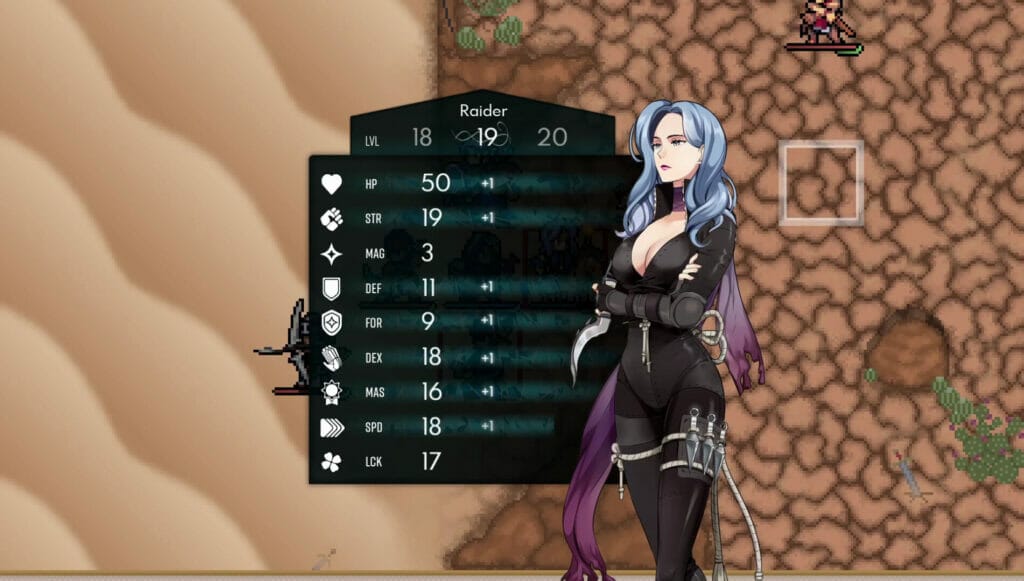
Additionally, during gameplay, two issues would consistently appear. 1) I would be able to zoom out beyond the map’s boundaries, which momentarily broke immersion for me whenever this occurred, and 2) during enemy phases, the attack zones for foes would flash whenever it would be their turn to move, which took away some of the tension of guessing which attack would come next and from where. While these are far from deal-breakers, these moments did show that there are still places where the game could have been polished.
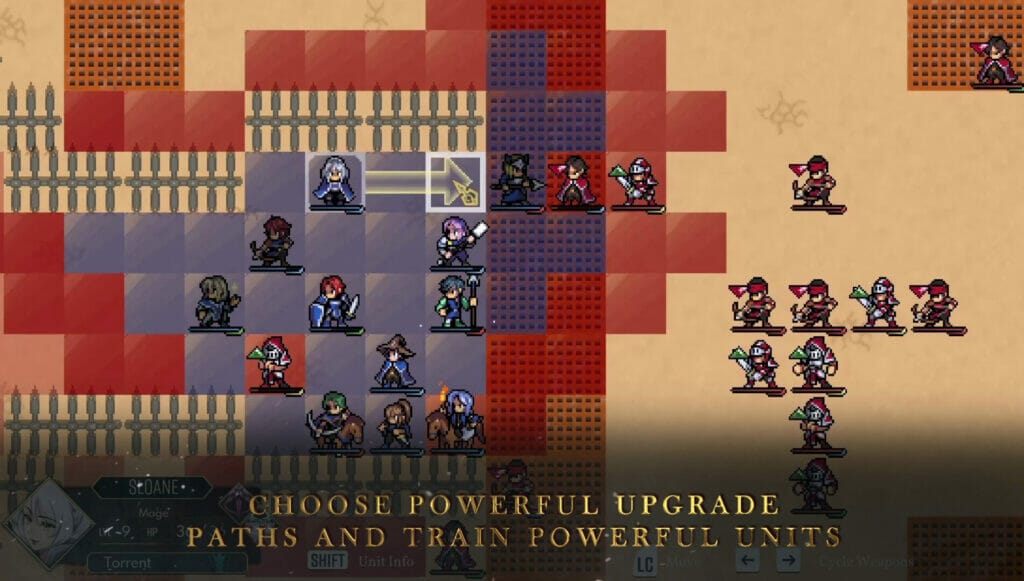
In spite of these issues, Dark Deity was one of the most surprisingly charming games I have played in recent memory. It wears its influences on its sleeve, but also innovates in its own ways, making it stand out just enough to the point where anybody, newcomers and experts alike, can enjoy it. There are some aspects that could have been polished, such as adding more tutorials and dealing with small bugs, but overall, this indie SRPG is very much worth your time. Dark Deity is a new shining light in the indie game industry, and it is one that should be shared with as many people as possible.
Want to discuss things further? Hit us up on Twitter, Facebook, or Instagram. For more film, gaming, anime, and TV news, trailers, and updates make sure to keep it locked right here at The Nerdy Basement. While you’re here, please consider supporting us on Patreon! It’s an easy way of supporting us so we can keep proving you with your Nerdy News!

